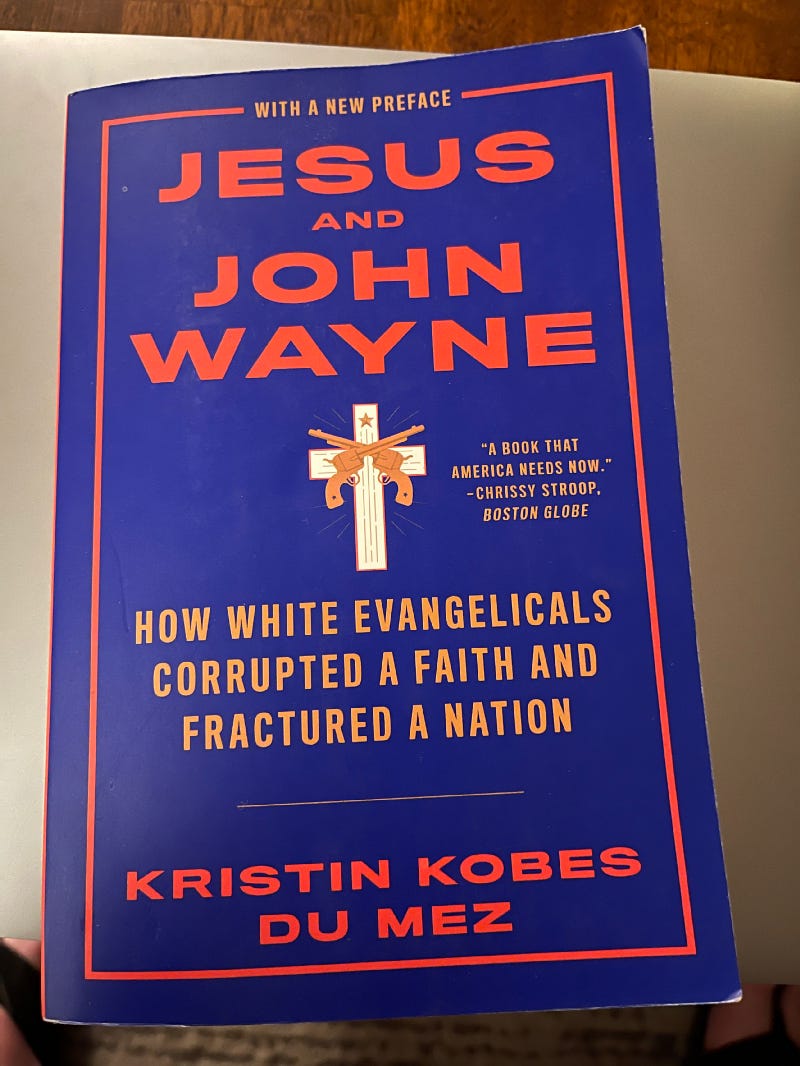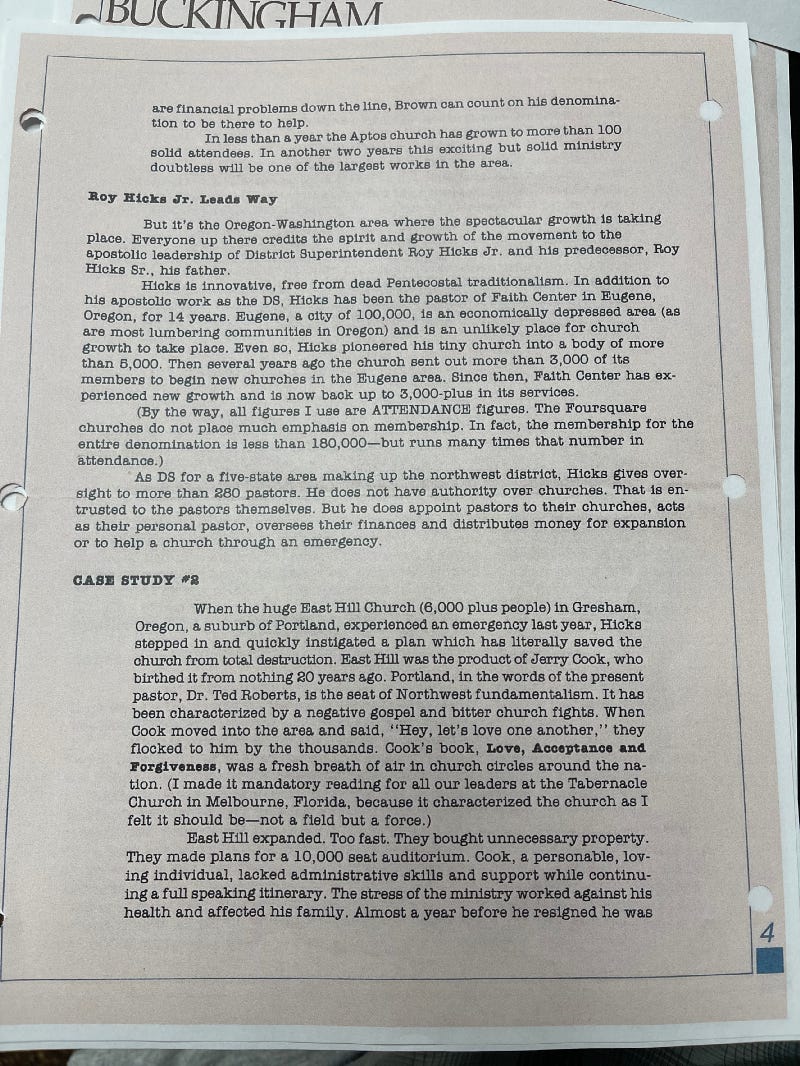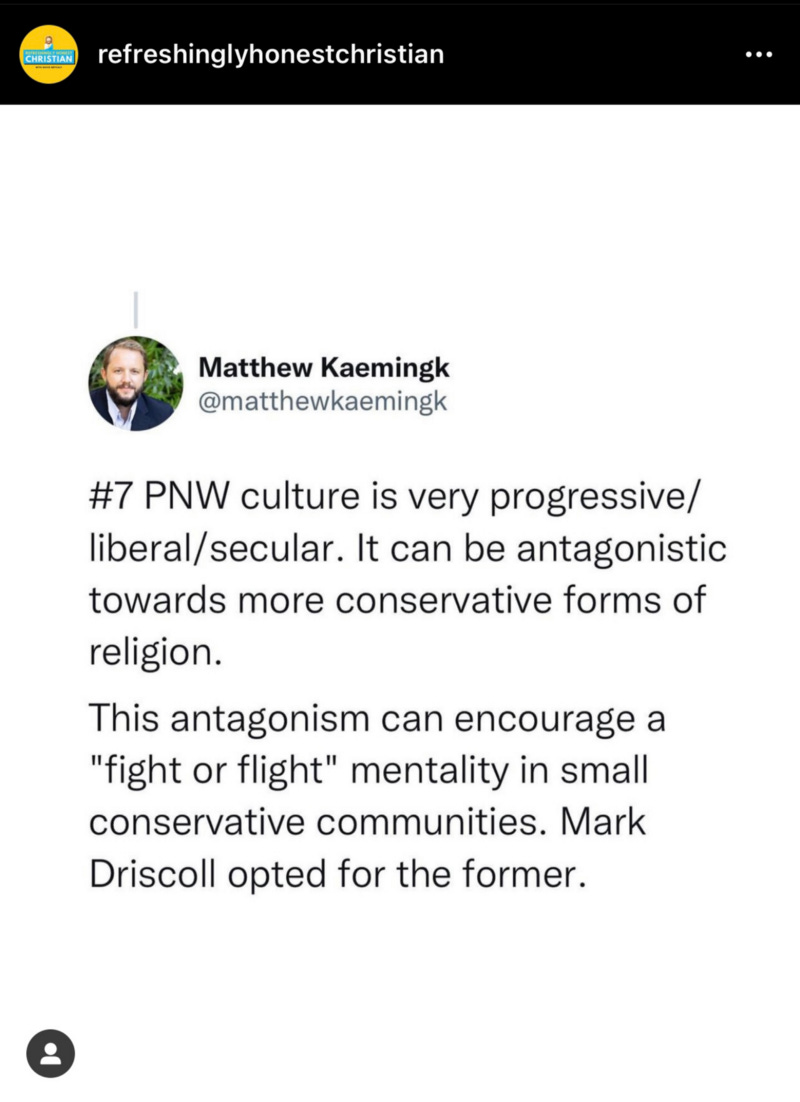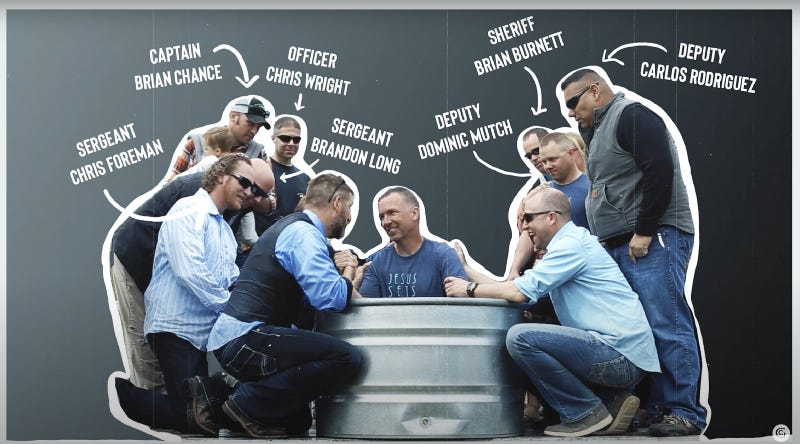The Danvers Statement and the PNW’s Appeals to ‘Indie’ Church Leaders
While searching to understand the institutional misogyny of organizations like Grace City Church in Wenatchee, Wa., I’ve been doing a lot…
While searching to understand the institutional misogyny of organizations like Grace City Church in Wenatchee, Wa., I’ve been doing a lot of research.
It started with an interesting and controversial document a source brought to my office earlier this year. It’s a new-member intake workbook from 2013, and the source said it caused quite a stir at the time. It caused so much of a stir that families left the fledgling church at the time because of it and GCC leaders asked for the all the hard copies to be returned.
This intrigued me. So we met up and I made a copy.
The timeline and yearly budgets on page 2 were illuminating when it come to understanding the growth of the church in its early years, but it is the manifesto on page 32 of the document that gives a greater understanding how organizations like GCC view women.
It’s called The Danvers Statement, and “as a church family, we affirm wholeheartedly the biblical vision of manhood and womanhood that this statement articulates,” write GCC leadership.
“The increasing promotion given to feminist egalitarianism with accompanying distortions or neglect of the glad harmony portrayed in Scripture between the loving, humble leadership of redeemed husbands and the intelligent, willing support of that leadership by redeemed wives,” it reads.
In addition to “feminist egalitarianism” the authors of the statement complain about the “legitimacy” of sexual relationships they deem as “biblically and historically” abnormal. Number 7 is a gripe about women in leadership roles.
It’s a foundational statement for organizations like GCC and in the years since this workbook was recalled, Grace City Church leaders have not distanced themselves from it. If they had a change of heart about the ingrained misogyny and homophobia in the Danvers Statement, they probably wouldn’t list one of the statement’s authors, Wayne Grudem, as a “guest lecturer” in the 2020–21 Vector Academy marketing booklet.

Grudem is one of the authors of the Danvers Statement, according to Kristin Kobes De Mez, author of “Jesus and John Wayne: How White Evangelicals Corrupted A Faith And Fractured A Nation.”
“In 1986, in an address before the Evangelical Theological Society, theologian Wayne Grudem had called for a new organization to uphold biblical manhood and womanhood,” Kobes Du Mez writes.
What started with an address by Grudem culminated in a meeting-of-the-minds (of sorts) in Danvers, Mass. a few years later. Grudem and “fellow reformed evangelist John Piper” wrote a statement “that would be come to be known as ‘complementarianism:’ God created men and women ‘equal before God’ yet ‘distinct in their manhood and womanhood.’”
“The statement attested that God had established male headship as part of the order of creation and closed the door to women in church leadership,” Kobes Du Mez writes. “The Danvers Statement was a response to an alleged ‘gender confusion’ ushered in by the 1960s and to the ‘evangelical feminism’ that had emerged in the 1970s. It was not, however, a call to an aggressive, militant masculinity.”
Where the “aggressive, militant masculinity” comes into the picture will have to wait, for now.
One of the most persistent questions I get is some variation of “What makes the Wenatchee Valley such a hotspot for organizations like GCC and Bethesda?”
My answer is this: I don’t think this is unique to the Wenatchee Valley. This is better understood as a regional issue. And it predates GCC and Mars Hill. In an 1985 issue of the Buckingham Report, “An In-Depth Critique By America’s Foremost Christian Analyzer Of The Issues, People & Events Affecting Today’s Spirit-Led Leaders” Jamie Buckingham advises church planters to “Go Northwest, Young Man” and dedicates an entire section of the newsletter to the “Explosion In The Northwest.”

The mention of Aimee Semple McPerson initially caught my eye, and made me wonder if there’s any relation to the local McPhersons who run GCC. While Aimee Semple McPherson is an interesting character in American evangelical history, and arguably the person who created the prototype for the modern megachurch, I don’t have any reason to believe there’s any relation to our local McPhersons. It is on my list of questions, though.
On pages four and five, Buckingham covers Bethesda Christian Center.
“What had been a Christian Camelot turned out to be Ichabod.”
It’s on the last page of the newsletter that Buckingham writes that “the Northwest is basically ‘unchurched,’” and urges spirit-led fellows with gumption to go plant churches in this “ripe” field.
“I know this: If I wanted to be used by God, and couldn’t find a place to serve in my area, I’d head for the Northwest and submit myself to someone in the Foursquare leadership,” Buckingham writes. “It’s time to paraphrase Horace Greeley’s advice of the 1850s when he said ‘Go west, young man, and grow up with the country.’ I say, ‘Go northwest, young man, and grow up with Jesus.’ The fields there are ripe unto harvest.”

For a more contemporary take on how “indie” churches like Bethesda, Mars Hill and Grace City Church find such fertile soil in the Pacific Northwest, public theologian Matthew Kaemingk has some poignant analysis.
You can replace Mark Driscoll and Mars Hill with Josh McPherson and Grace City and this whole thread wouldn’t change much. Driscoll wrote the playbook at Mars Hill in Seattle that McPherson is using at Grace City in Wenatchee to this day. The only difference is that GCC has been more successful at making inroads with influencers in the public and private spheres. I have already reported on the connections to law enforcement, especially the Chelan County Sheriff’s Office, but GCC gave me another connection to Wenatchee Police Department this week, as well as this very helpful titled graphic they provide at 6:34 in this video featuring WPD Officer Justin Kissel.




















